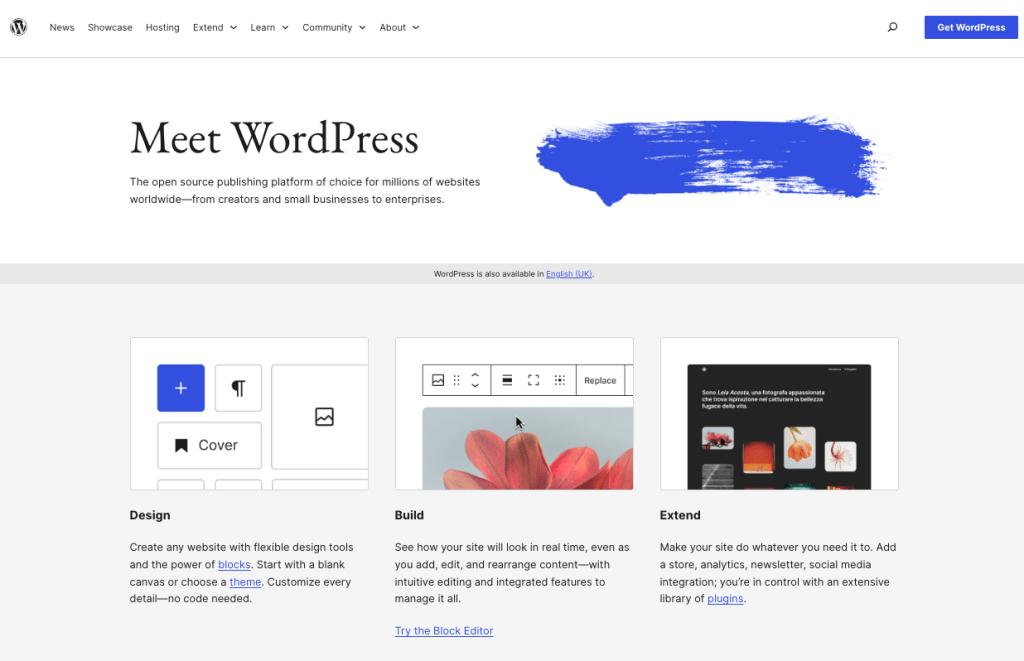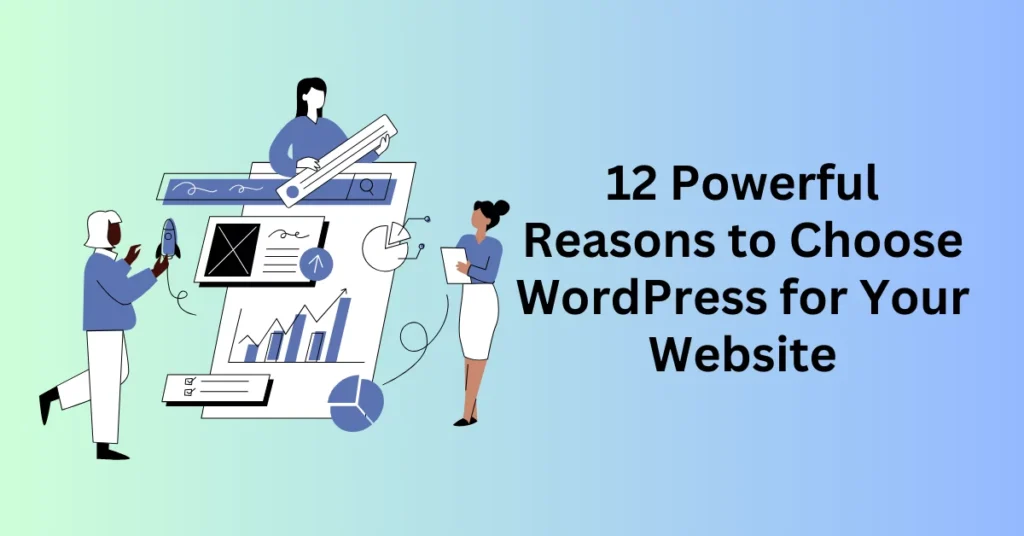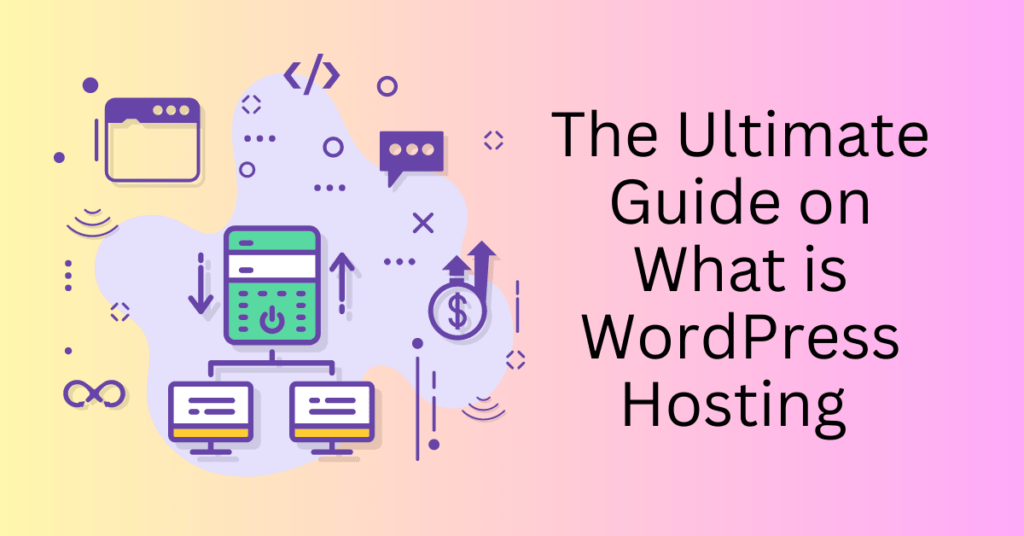As the world’s most popular content management system (CMS), WordPress powers millions of websites across the globe. Moreover, its impressive flexibility and unique features make it the ideal choice for anyone looking to build a high-performing, scalable website that meets a variety of needs. Whether you’re a blogger, an entrepreneur, or a large organization, WordPress has something to offer.
With an extensive suite of tools at your disposal, WordPress not only empowers you to create compelling content but also helps engage your visitors and optimize your site for better performance. Furthermore, its user-friendly interface is perfect for beginners while still accommodating the demands of high-traffic websites.
In this comprehensive guide, we’ll delve into 14 key benefits of WordPress, highlighting why it remains the top choice for building a flexible and professional website. From its SEO capabilities to its extensive customization options, we will explore how WordPress can elevate your online presence. Whether you’re just starting out or looking to enhance an existing site, understanding these benefits will equip you with the knowledge to harness the full potential of WordPress.
Start Your Website Today with Exclusive Offer
What is WordPress for a Website?

WordPress is a highly versatile and user-friendly content management system (CMS). It is designed to empower users in creating, managing, and customizing various types of websites. Whether you want to launch a personal blog, a professional portfolio, an eCommerce store, or an enterprise-level site, WordPress has you covered. It provides a robust framework and the tools needed to bring your vision to life.
Open-Source Flexibility and Control
One of the standout features of WordPress is its open-source nature, offering users unparalleled control over their website’s design and functionality. This flexibility allows you to modify, enhance, and tailor your site to meet your specific needs. Additionally, with a vast library of plugins and themes available, customization becomes straightforward and accessible. Whether you’re looking to improve SEO, ensure mobile responsiveness, or integrate multimedia content, WordPress provides the essential tools to create a unique and functional online presence.
The Evolution of WordPress: From Blogging to Full-Fledged CMS
WordPress’s journey began in 2003 when co-founders Matt Mullenweg and Mike Little released it as free software primarily aimed at bloggers. Initially, it served as a simple platform for sharing thoughts and ideas. However, over the years, WordPress has evolved remarkably. It has transformed into a comprehensive content management system capable of running complex websites across various sectors, including business, eCommerce, portfolios, and media-rich sites.
This evolution was largely driven by continuous user feedback, enabling the platform to receive regular, user-driven updates. Furthermore, the introduction of thousands of plugins and customizable theme options has allowed WordPress to adapt to its users’ diverse needs. From its humble beginnings as a blogging platform, WordPress has grown into an ideal solution for hobbyists and budget-conscious website owners alike. It empowers them to create professional and engaging sites with ease. By understanding its origins, users can better appreciate the global, community-driven effort that has shaped WordPress into the powerhouse it is today.
Though initially conceived as a blogging platform, WordPress’s architecture quickly expanded. It now supports full-fledged websites, web applications, and eCommerce stores. This transition has significantly contributed to its widespread popularity. Today, WordPress powers over 40% of all websites on the internet. Businesses, users, and developers trust WordPress for its ability to create visually appealing and functional websites. Best of all, it does not require extensive coding knowledge.
This remarkable flexibility, along with a supportive community and an ever-growing ecosystem of resources, makes WordPress an ideal choice. Whether you’re a seasoned developer or a newcomer to the web, WordPress has the tools to help you succeed.
Different Types of WordPress Website Hosting
When setting up a WordPress site, choosing the right web hosting solution is crucial for ensuring optimal performance and user experience. Two popular options are shared hosting and managed WordPress hosting, each catering to different needs and budgets.

Shared Hosting: A Cost-Effective Starting Point
Shared hosting is often the go-to choice for many new website owners, particularly those with smaller sites or lower traffic volumes. This entry-level option is budget-friendly, allowing you to host your website on a server shared with multiple other sites. While it can be an excellent starting point, shared hosting has its limitations. The shared resources may lead to slower load times during peak traffic and can compromise security, as vulnerabilities in one site can potentially affect others on the same server.
This type of hosting is best suited for personal blogs, small business websites, or projects that do not require extensive resources. It provides an economical way to get your website up and running without the need for technical expertise.
Managed WordPress Hosting: Tailored for Performance and Security
For websites that demand more robust performance and security features, managed WordPress hosting is often the better choice. This specialized hosting is designed specifically for WordPress, offering benefits that go beyond the capabilities of shared hosting. Key advantages include:
- Enhanced Security: Managed hosting providers implement advanced security measures to protect your site from potential threats and vulnerabilities.
- Faster Speeds: Optimized server configurations ensure quicker load times, improving user experience and boosting SEO rankings.
- Automatic Updates: Managed WordPress hosting typically includes automatic updates for WordPress core, themes, and plugins, keeping your site secure and up to date without requiring manual intervention.
- Expert Support: With access to dedicated WordPress support teams, you can get assistance from professionals familiar with the platform, ensuring that any issues are resolved quickly and effectively.
Whether you’re a WordPress developer or a site owner seeking a reliable solution, understanding the distinctions between shared and managed WordPress hosting is essential for making informed decisions about your website.
VPS and Cloud Hosting
As your website grows, your need for scalable hosting increases as well. Many businesses find that moving from shared hosting to a Virtual Private Server (VPS) or cloud hosting offers the speed, flexibility, and resources required to handle increasing traffic demands.
VPS Hosting: With VPS hosting, your website runs on a dedicated virtual server. This provides more resources and greater control than shared hosting. It allows you to customize server settings and manage traffic spikes more efficiently. This makes VPS hosting an ideal choice for businesses experiencing growth.
Cloud Hosting: Cloud hosting offers similar benefits but leverages a network of interconnected servers to provide enhanced reliability and scalability. It enables your site to handle high traffic volumes seamlessly, as resources can be allocated dynamically based on demand. This makes cloud hosting an excellent choice for website owners planning for significant growth.
Both VPS and cloud hosting ensure that your self-hosted WordPress site remains performant and secure, even during traffic spikes, making them top choices for businesses that anticipate growth. By choosing the right hosting solution, you can lay a strong foundation for your WordPress website’s success.
Start Your Website Today with Exclusive Offer
Why is WordPress Website Popular?
WordPress has become one of the most widely used content management systems (CMS) in the world, and for good reason. Its open-source nature and remarkable adaptability make it an ideal choice for beginners and advanced developers.
User-Friendly Dashboard for Your Website
One of the standout features of WordPress is its intuitive dashboard, designed with user experience in mind. The interface is straightforward, allowing users to easily create and manage blog posts, sales pages, and other types of content. Best of all, this can be done without requiring extensive technical knowledge. As a result, this user-friendliness lowers the barrier to entry for those new to website development, making it accessible to a broad audience.
Limitless Customization with Themes and Plugins for Your Website
WordPress boasts an extensive library of themes and plugins, providing users with virtually limitless customization options. Whether you want to create a visually stunning blog or a fully functional eCommerce site, you can find themes tailored to your specific needs. Plugins further enhance functionality, allowing users to add features such as contact forms, SEO optimization tools, and social media integration with just a few clicks. This flexibility empowers users to create a unique online presence that aligns with their brand and goals.
Strong Community Support and Continuous Updates for Your Website
The large and vibrant WordPress community is another significant advantage of the platform. With millions of users worldwide, the community offers robust support through forums, documentation, and tutorials. Additionally, the platform undergoes continuous updates, ensuring that it remains secure, efficient, and compatible with the latest technologies. This collaborative effort fosters innovation and keeps WordPress at the forefront of web development.
SEO Friendly for Your Website
In today’s digital landscape, having a website that ranks well on search engines is essential for visibility and growth. WordPress is inherently built for search engine optimization (SEO), offering features that help improve your website’s search rankings. From customizable permalinks and metadata to SEO-friendly themes and plugins, WordPress provides the tools needed to optimize your content effectively. This makes it an excellent choice for small businesses looking to enhance their online presence as well as large-scale enterprises aiming for robust digital marketing strategies.
Whether you’re launching a personal blog, a small business site, or a large corporate platform, WordPress is a standout solution for web development. Its user-friendliness makes it accessible to everyone. The extensive customization options allow you to tailor your site to your needs. Strong community support provides assistance whenever needed. Additionally, its SEO capabilities make it a powerful choice for establishing a successful online presence. As you explore the world of WordPress, you’ll discover that it offers the flexibility and tools necessary to bring your vision to life.
Benefits of using the WordPress Platform for Your Website
WordPress has emerged as a leading platform for building and maintaining both personal and commercial websites. Its versatility and user-friendly features make it an excellent choice for users at all levels of expertise. Here are some of the primary benefits of setting up and maintaining your website with WordPress.
1. Flexible to Use and Scale
Originally designed for blogging and online publishing, WordPress has evolved into a powerful platform that supports a wide variety of websites. Today, it powers everything from complex sites for large corporations to small business websites and personal blogs. WordPress can accommodate various needs, including eCommerce stores, portfolios, social networks, community forums, and podcasts. The core WordPress package provides a solid foundation, while essential and premium plugins can be added to tailor functionality to specific requirements. With easy access to its source files and a wealth of themes, WordPress can adapt to a company’s changing needs.
2. User-friendly for all Levels
One of the standout features of WordPress is its user-friendly interface, which allows users to establish and operate a website within minutes, regardless of their technical proficiency. To get started, all you need is a domain name and a web hosting account. WordPress can be installed for free, either through your hosting provider or by uploading it directly from WordPress.org. The intuitive admin dashboard offers advanced features that enable users to customize their site’s layout, create pages, and publish posts easily.
3. Extensive Theme Options for Website Customization
WordPress provides an impressive variety of themes. This allows users to customize their blogs or websites to fit their unique style and branding. The WordPress theme directory features a vast selection of both free and premium themes. Many of these themes are instantly available for new site owners. Users can also explore thousands of additional options from design marketplaces and third-party designers worldwide. The ability to preview themes before installation simplifies the process. This ensures that you can find the perfect fit for your site.
4. Extend Website Functionality with Massive Plugins Option
While WordPress comes equipped with essential tools to build a basic website, many users need additional features. The WordPress plugin directory boasts hundreds of plugins that allow users to add diverse functionalities. These include shopping carts, galleries, and contact forms. Users can also purchase and install custom plugins from third-party developers. The flexibility to activate, deactivate, and uninstall plugins enables you to tailor your website as it evolves. This ensures that your site always meets your requirements.
5. SEO-Friendly Website Structure
Search engine visibility is crucial for any website, and WordPress is designed with SEO in mind. Its clean and readable code, along with features that optimize page titles, meta descriptions, and URLs, helps improve your site’s search rankings. Additionally, WordPress supports various SEO plugins, making it easier for search engines to crawl and index your content. This inherent SEO-friendliness positions WordPress websites to rank well for relevant keywords.
6. Mobile-Responsive Design
In an era where mobile usage continues to rise, having a mobile-responsive website is essential. WordPress themes are designed with mobile compatibility in mind, ensuring that your website looks and functions beautifully across a variety of devices. Given that Google considers mobile-friendliness as a ranking factor, WordPress offers numerous responsive theme options. Users can also implement theme file modifications and plugins to further enhance mobile responsiveness.
7. Built-in Content Management/Blogging Feature
WordPress’s rich content management capabilities make it easy to publish and manage blog content. In fact, the built-in blogging feature is always accessible, allowing users to seamlessly integrate a blog into their website without starting from scratch. As a result, even non-blogging websites can utilize a blog for updates, news, and engaging content. This makes WordPress a flexible platform for websites of all types.
8. Strong Community Support
As a free and open-source platform, WordPress benefits from a global community of enthusiasts dedicated to enhancing its capabilities. Moreover, this vibrant community plays a crucial role in maintaining and updating WordPress. In addition, users receive support through forums, documentation, and tutorials, ensuring they are never left without guidance. WordPress camps and local user groups further foster collaboration and learning, making it easy for users to connect and share knowledge. Ultimately, this supportive environment empowers users at all levels, providing them with the resources they need to succeed.
9. Robust Security Features
Security is a critical concern for any website, and WordPress prioritizes user safety. The platform is built with secure code and regularly releases updates to address vulnerabilities. Users can further enhance their site’s security by installing plugins like Wordfence or Sucuri, which offer firewall protection and malware scanning. These features not only protect your WordPress site from potential attacks but also provide peace of mind for both developers and site owners.
10. Social Media Integrations
WordPress allows for seamless integration with social media, enhancing your digital presence. Plugins like Jetpack and Smash Balloon enable automatic sharing of blog posts on social media platforms and can display social feeds directly on your website. This functionality boosts engagement and traffic, demonstrating that WordPress themes can be both visually appealing and functional in the modern web landscape.
11. Limitless Customization
One of the most celebrated aspects of WordPress is its limitless customization capabilities. With thousands of plugins and themes available, users can create a unique site that meets their specific needs. The platform also allows for the addition of custom CSS and modifications to the source code, making it a flexible solution for web designers and online store owners alike.
12. eCommerce Capabilities
For those looking to build an online store, WordPress offers a robust foundation. Site speed is critical for retaining mobile users and enhancing search engine traffic. WordPress provides numerous options for optimizing site performance, such as lightweight themes and caching plugins like W3 Total Cache. By ensuring fast load times, WordPress enhances user experience and SEO, proving itself to be not just a versatile CMS but also a powerful platform for modern eCommerce.
With its wide array of features, extensive customization options, and strong community support, WordPress has established itself as a leading choice for website development. Whether you are a beginner looking to create your first blog or a business seeking a robust online presence, WordPress provides the tools and flexibility necessary to succeed in today’s digital landscape.
Additional Advantages of WordPress Website
WordPress continues to be a top choice for individuals and businesses looking to create a strong online presence. Below are some additional benefits that make WordPress an attractive option for website development:
1. Multilingual Capability
WordPress offers built-in multilingual support, making it easy to create websites in multiple languages. This feature is especially advantageous for businesses and organizations that aim to reach a global audience or cater to multilingual communities. With various multilingual plugins available, you can easily translate your content and create a seamless experience for users regardless of their language preference.
2. Cost-Effective Solution
One of the most appealing aspects of WordPress is that it is completely free to use, being both SEO-friendly and open-source. This cost-effectiveness is particularly beneficial for small businesses that may have limited budgets. With a user-friendly interface and a wealth of free themes and plugins, WordPress allows you to build a professional-looking website without incurring significant costs. This accessibility makes it possible for even the smallest startups to establish a robust online presence.
3. Scalability for Growth
As your business grows, so do your website needs. WordPress is highly scalable and capable of handling everything from high-traffic sites to expansive content databases. Whether you’re running a personal blog or an enterprise-level website, WordPress can accommodate increased functionality and more complex features without compromising performance. This scalability ensures that your website can evolve as your requirements change, making it a suitable long-term solution for businesses of all sizes.
4. Extensive Integration Options
WordPress excels at integrating seamlessly with a wide range of third-party services and platforms. Whether you need to connect your website to popular marketing tools, analytics platforms, or email marketing services, WordPress makes it easy. It also allows integration with social media channels and payment gateways. This level of integration enables you to connect with the tools you already use. As a result, it streamlines your operations and enhances your website’s capabilities.
With its multilingual support, cost-effectiveness, scalability, and extensive integration options, WordPress is more than just a content management system. It’s a versatile platform that meets the diverse needs of individuals and businesses. Whether you want to create a simple blog or a complex eCommerce site, WordPress provides the tools necessary for building a successful online presence.
Future of WordPress
WordPress has consistently adapted to the changing landscape of web development, integrating innovative features that enhance user experience and site performance. Two significant advancements in this evolution are the Gutenberg block editor and the adoption of headless CMS architecture.
1. Gutenberg Block Editor
The Gutenberg block editor revolutionized how users create and design content within WordPress. By introducing a block-based system, Gutenberg allows for greater flexibility in layout creation. Each element—be it text, images, videos, or buttons—can be manipulated as a separate block, giving users unprecedented control over the appearance and functionality of their content.
This shift makes it easier for users without extensive coding knowledge to build visually appealing and complex layouts. The drag-and-drop interface simplifies the process of arranging and customizing content, streamlining workflows and enabling quicker adjustments.
As the Gutenberg editor continues to evolve, it is expected to incorporate even more advanced features, further enhancing its user-friendliness and customization capabilities. This evolution positions the Gutenberg block editor as a vital tool for both WordPress developers and website owners, promoting a more intuitive content creation process.
2. WordPress and Headless CMS
A growing trend in web development is the use of headless CMS architecture, where WordPress serves as the backend content management system while frameworks like React or Vue.js handle the frontend presentation. This separation of concerns offers several advantages:
- Faster Load Times: By decoupling the frontend from the backend, websites can achieve improved performance and faster load times, as modern JavaScript frameworks are optimized for speed.
- Increased Flexibility: Developers gain more freedom to create custom user experiences, tailoring the design and functionality of the frontend without being restricted by traditional CMS limitations.
- Enhanced Control Over Design and Performance: A headless WordPress setup allows businesses and developers to implement the latest web technologies, ensuring that their sites remain competitive and responsive to user needs.
This approach is especially beneficial for organizations that need a high level of customization, interactivity, or performance. It makes headless WordPress a compelling choice for forward-thinking developers and businesses.
The advancements of the Gutenberg block editor and the headless CMS architecture reflect WordPress’s commitment to innovation and adaptability. By continually enhancing its features and capabilities, WordPress remains a powerful and versatile platform. It caters to users seeking to create engaging, high-performing websites. Whether you’re using the user-friendly Gutenberg editor or exploring a headless CMS setup, WordPress offers the tools you need. These tools will help meet your evolving web development needs.
Final Thoughts: 12 Powerful Reasons to Choose WordPress for Your Website
WordPress stands out as a versatile and user-friendly platform that caters to a wide range of website needs. Whether you’re looking to establish a personal blog, launch a complex enterprise site, or create an engaging eCommerce store, WordPress offers the flexibility and features required to succeed.
If you’re ready to create your new website, consider using Bluehost, which offers specialized WordPress hosting designed to simplify the process. With just a few clicks, you can easily install WordPress and get started on your site.
Bluehost provides user-friendly, drag-and-drop tools that make building responsive websites straightforward and hassle-free. Whether you’re launching a blog, an eCommerce platform, or a corporate website, Bluehost equips you with everything you need to create a professional and dynamic online presence.
Don’t wait any longer—begin your WordPress journey today and unlock the full potential of your online presence!


